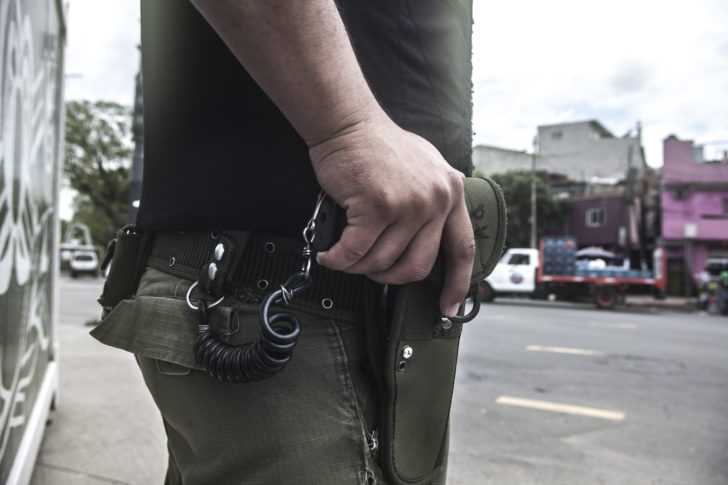Today Argentina’s government published resolution 956/2018, which establishes rules regarding the use of firearms by federal security forces. This measure abandons the paradigm of the exceptional use of lethal force, permitted under international standards and the national Domestic Security Law. After having repealed the Program on the Use of Force and having weakened internal controls, the government also seeks to avoid judicial oversight with this new measure. Starting today, situations such as vehicle checks, street chases or any robbery attempt in the public thoroughfare become scenarios in which the police could easily justify using their firearms. This prioritizes the legal protection of property over human life and poses great danger to all involved in such situations, including passersby.
The UN Code of Conduct for Law Enforcement Officials, which was incorporated into Argentine legislation through Domestic Security Law 24.059, refers to the use of firearms as an exceptional and extreme measure. The new ministerial resolution modifies that approach by enabling a series of clearly unexceptional situations in which such arms could be used.
For example:
>The notion of proportionality is lost upon enabling the use of firearms against those who carry other types of weapons or carry no weapons at all.
>The broad nature of situations characterized as posing an “imminent danger” enables the use of lethal force against people who are fleeing or who form part of a group in which one person is armed.
>In some cases, the police could skirt guarantees as basic as the presumption of innocence. This occurs, for example, because the resolution enables the possibility of shooting at people whom police suppose could have committed a crime and are fleeing, as occurred in the killing of 12-year-old Facundo Ferreira in Tucumán province.
>The new regulations fail to indicate that even when firearms are used, officials must reduce damage and injuries to a minimum and protect human life, as set forth in the Basic Principles on the Use of Force and Firearms by Law Enforcement Officials, which the resolution invokes.
>Neither do they specify that everything possible should be done to avoid the use of firearms against boys, girls and adolescents, as the UN Code of Conduct indicates.
In addition to increasing the threat to people’s lives and integrity, the resolution represents an encroachment by the executive branch on judicial powers, since it seeks to limit the courts’ capacity to exercise oversight of police actions to the greatest extent possible.
Currently, judges are the ones to interpret the law and standards on the use of force, ruling in each particular case. The new regulations curtail judges’ faculties to determine possible illegal conduct by classifying a wide range of situations related to the use of lethal force – which today are considered to be irrational and excessive – as the “fulfillment of duties,” thereby attempting to exempt security forces from responsibility a priori. And the powers taken away from judges are largely transferred to the police: the broad nature of the definitions set forth in the resolution implies that almost anything can be justified as an “imminent danger” by police. These were the arguments used by the executive branch to defend the actions of police officer Luis Chocobar, which the courts rejected.
In this way, with regard to a central aspect of political governance of security forces, the national executive branch refuses to professionalize them and transform them into democratic police corps. On the contrary, it seeks to neutralize any oversight of police action. This decision is in line with other political messages and Security Ministry measures aimed at encouraging the use of firearms (both by police and civilians) and ensuring that security forces do not have to account for their actions. This will inevitably lead to greater levels of state and social violence.
*Photo: Nahuel Alfonso

